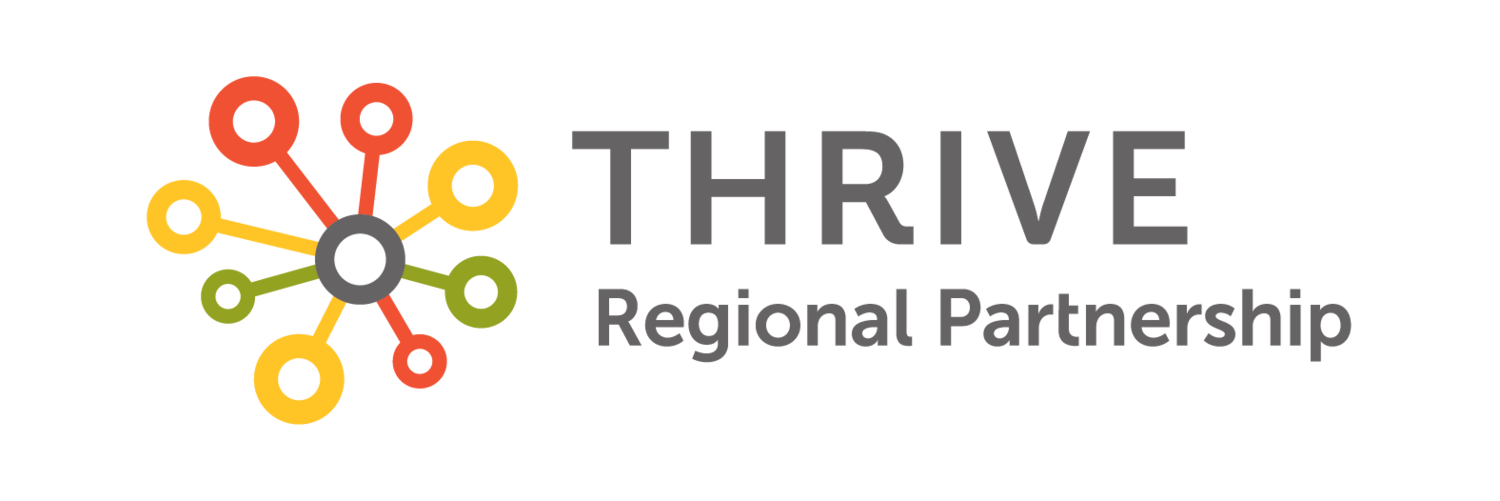Cross-sector, multi-jurisdictional Transportation Collaborative secures competitive funding for freight planning in the greater Chattanooga region.
Stakeholders from Covenant Transport Solutions and TDOT discuss freight challenges in the greater Chattanooga region.
Challenge
Historically, government offices operate in silos. Staff and directors oversee their areas of expertise and rarely stray from their lane. Communication gaps can be common both internally and in establishing external relationships among relevant parties.
The Tennessee Department of Transportation (TDOT) encountered these obstacles in addressing prominent freight challenges that affect the tri-state greater Chattanooga region. Problem areas include:
Truck Parking - in the greater Chattanooga region, there is a lack of safe truck parking options for drivers to stop and rest in accordance with federal regulations.
Freight flow - with access to rivers, roads, and rail lines, there are ample opportunities for multi-modal freight transport, but a need to audit and optimize.
Congestion - in the corner of Alabama, Georgia, and Tennessee, the major interstates in the region (I-75 and I-24) are frequently gridlocked by truck and commuter traffic.
When a unique federal funding opportunity for multi-jurisdictional partnerships presented itself, TDOT turned to Thrive Regional Partnership and its Transportation Collaborative network to help secure the grant.
“Freight does not recognize political boundaries.”
Approach
Thrive Regional Partnership’s year-long Transportation Collaborative task force (2018), had already broken the mold of typical silos by convening state and local agencies, as well as private business, to discuss the future of mobility. Together, the cross-sector group was proactive instead of reactive.
Upon joining the collaborative, TDOT found that it is not alone in its challenges as a government agency. In fact, its concerns and pain points, such as truck parking and traffic congestion, were validated by stakeholders from private industry, such as manufacturing and logistics companies. The Transportation Collaborative revealed that shared empathy and simple collaboration could uncover potential solutions between stakeholders and position the region for national funding to design and test those solutions.
Value
Thrive’s Transportation Collaborative model attracted funding.
The model positioned TDOT’s application on behalf of the greater Chattanooga region to be a top contender for funding from the Federal Highway Administration’s National Economic Partnerships for Innovative Approaches to Multi-Jurisdictional Coordination program. The program encourages areas of the country to work together and collaborate on issues that span across jurisdictional boundaries, such as freight, safety, congestion, infrastructure, economic development; all of which are often complex in nature. WIth a collaborative network in place, Thrive was well-positioned to secure 23 letters of support from stakeholders across Alabama, Georgia, and Tennessee for TDOT to support the grant application.
Thrive’s Transportation Collaborative model can be replicated.
The collective model of the Transportation Collaborative is a template that could be replicated by TDOT in other areas of Tennessee that are near state borders (such as Memphis), as well as by other government transportation offices in other areas of the country.
Results
Thrive continues to serve as the convening, collaborative agency in the proceedings of the NEP grant. Results include:
Thrive’s Freight Mobility Coalition
Thrive’s Freight Mobility Coalition is an ongoing partnership framework composed of public officials and private industry representatives that convenes quarterly to develop freight solutions across boundaries and increase awareness of trends affecting the freight industry.
Freight Partner Survey
A survey of 39 freight partners including Drivers, Owner/Operators, Fleet Managers, and Executives, designed to understand the shared issues and needs of freight communities/stakeholders, in order to affect mega-regional policy implications and recommendations and secure buy-in. View survey results.
Feedback Loop for Policy Recommendations
In advance of CDM Smith’s grant report deadline, Thrive facilitated a virtual forum during which the consultant could share their draft policy recommendations for the tri-state region and receive live feedback from stakeholders in freight industry and public sector officials.
“The regional collaboration of Thrive offers a unique perspective as the close proximity of state lines can add complex communication gaps and issues. With all three states working together, we truly can discuss, strategize, plan and work together for impactful solutions to the areas around the region. This is extremely vital to growth in the entire region.”
Key Partners
Timeline
2017
November | Thrive’s transportation leadership formed
2018
January | Thrive’s Transportation Collaborative launched
July-August | Thrive assisted TDOT with grant application, securing 23 letters of support from mega-region.
August | TDOT submitted application to Federal Highway Security Administration
August-December | Thrive continues convening Transportation Collaborative, publishes Tri-State Roadmap Report as summary
2019
May | TDOT was awarded National Economic Partnership grant
July | National Economic Partnership kick-off meeting
September-December | Thrive conducts freight partner survey and research
2020
February | Thrive publishes freight partner survey results
March | Q1 Freight Mobility Coalition meeting and grant updates
June | Q2 Freight Mobility Coalition meeting and grant updates
August | Virtual Freight Forum: National Economic Partnership in Action
Thrive continues to convene its Freight Mobility Coalition quarterly. For more information about the study made possible by the NEP grant, click here.


